The feminists, and Soraya Post, will take a seat in the European Parliament. This is history being made – or rather herstory, to use a term from the linguistic avantgarde. This is the result of relentless footwork on the part of Gudrun Schyman, the persistent core of Feminist Initiative, FI, a lot of awareness-raising – and – the rough winds blowing through Europe.
The winds were chilly, literally so, when the party started their member recruitment campaign in November 2013, with no money and just 1,500 members. But the response was immediate and surprisingly positive – the signs of what we witnessed on Sunday night were clear even back then: the wind has changed. Feminist Initiative have offered to organise a counterforce that noone else could muster, despite the good forces present in several other parties.
FI are entering the European Parliament, not after a normal election campaign, but after a good old tour of political agitation and public education. A unique feature of the campaign has been its “home parties”, meeting big crowds of people in their homes or other places locally, all over Sweden. Parallels have been drawn to Barack Obama’s 2008 U.S. campaign, in large part because of the party’s excelling at social media usage, but a historical nod should also go to Joe Hill and the early working-class movement. The question that has been brought to the fore is this: why get active in politics?
A feeling of powerlessness has been broken. A feeling that has been shared by feminists, LGBTQ activists, anti-racists, racialised people, young people with bleak futures and old people with no pensions. FI have shown that they mean business, sticking to less easily marketable views, like the idea that freedom of religion includes both the right to wear a veil and the right not to, dealing with the pressing question of the labour movement’s sad need for setting up hierarchies among grounds for discrimination and actually including women, migrants, migratory workers, the LGBTQ collective, and, not least, the complex reality that feminism through its very nature transcends party lines.
The thorough work that FI’s nominating committee have done, and the party’s own discussions about whiteness and its privileges, have made a large impact. They are not merely claiming to represent – but Soraya Post actually does represent, not only feminists, but also Roma people. This is of vital importance. Whiteness, along with a somewhat lukewarm attitude to the entire EU project, has characterised the lists of several of the established Swedish parties.
It is true that Feminist Initiative have not spoken all that much of steering documents, facts and figures, or what party alliances to make. Their message has been ideological: The equal value of all human beings, which is a stark contrast to the pan-European landscape we now have to face; Who shall we get rid of? Who should be thrown out? Whose clothes should be prohibited? Who can be let in? Whose religion is not covered by constitutional religious freedom? Whose luggage has to be searched? Who gets a job, and who gets a loan? Who should clean whose house? Europe’s journey into darkness has accelerated at a speed that seemed impossible before 2001.
There were many in Sweden who had very mixed feelings on Sunday night: Joy for the strong red-green-pink results at home, but at the same time frustration, fear and chills at the advances of nationalists and racists all over Europe. Today, we need to hold on to the feeling of having broken the chains of powerlessness. Feminist Initiative are not alone in this. There has been a people’s uprising against the Sweden Democrats ever since the mass mobilisation against racism and fascism in Stockholm suburb Kärrtorp just before Christmas. Firefighters, healthcare workers, musicians and youth in schools have shown just what democracy in this country is made of; a strong spine of grass roots activism and professional ethics took on what the establishment was too weak to handle. The Emperor may have a nice suit, but he has no politics, no future to offer, just a race to the bottom. The Survivor game of nationalism leaves only one person standing – the white man in the middle.
The Swedish election results showed what everyone in the media and communications business should already know: it’s easy to sell populism, criticism, separation and complaints. The questions that have been posed in our media during the last year, “How much immigration can Sweden take?” and “Has feminism gone off the rails?” illustrate the point. It’s much more difficult to “sell” solidarity, self-criticism, communal projects. The latter demands responsibility not just for yourself but also for the common good.
The maps are there, we just need to dust them off. We can find them among the working-class movement’s old documents. But now, we have to include everyone in the project. That’s the dimension Feminist Initiative brings to politics. And to be very short and succinct: feminism by its very nature transcends party lines and borders, just like climate change and needs for representation, but Feminist Initiative is a left wing alternative. Simple, right?
What continues to be baffling is how centrist politics keep spreading, with the direct result that nationalists, racists and fascists can gain even more ground. There is no shortage of studies, warnings or facts about this. Why is the political centre so silent on this? This centrifugal force has sucked us all in towards the middle. (det finns tyvärr ingen engelsk fras som är lika lättigenkännlig som voteringsreferens som ”någon däremot?”. Det närmaste man kommer är ”Those opposed say no” vilket ju inte ger samma effekt alls, så jag röstar för att utesluta den meningen.) And that’s when the voices on the margins can start being heard; militant anti-abortionists, and militant advocates of a woman’s right to make choices about her own body, for example. There seems to be a line drawn by inclusive feminism. That’s why feminists have been so vocal and active in this election.
Politics have been imploding for many years now. That this brown alliance is trying to fly under a flag that says “EU critical” can’t be allowed to fool anyone. There is a great need to make sense of how these politics of discontent blossom in the exclusionary and hierarchical project that is the EU – and the effects of the forced monetary union and the resulting economic exclusion are connected to this.
Our feminist eyes now look toward the Swedish national elections this Autumn, but also toward the European developments. Keeping up the energy is important, as is keeping the movement together. New left-wing alliances need to be forged, while the political profiling of the electoral campaigns gets underway. Activism never goes out of style – and as Schyman says, this is not a drill. Rejoice in the counterforce rallying, and look to the future – that’s what’s important.
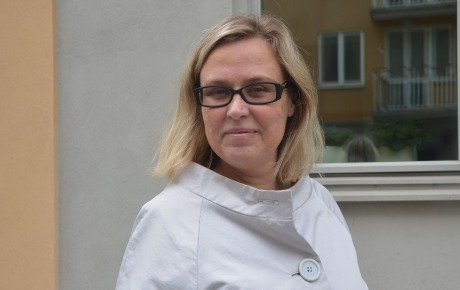
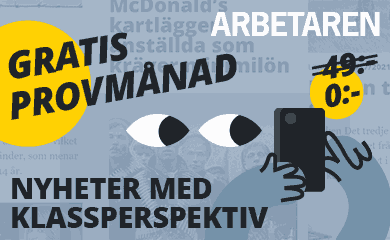

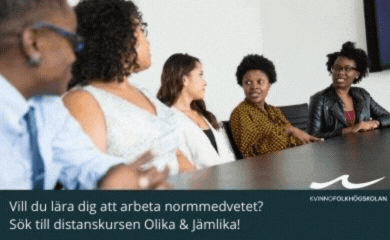





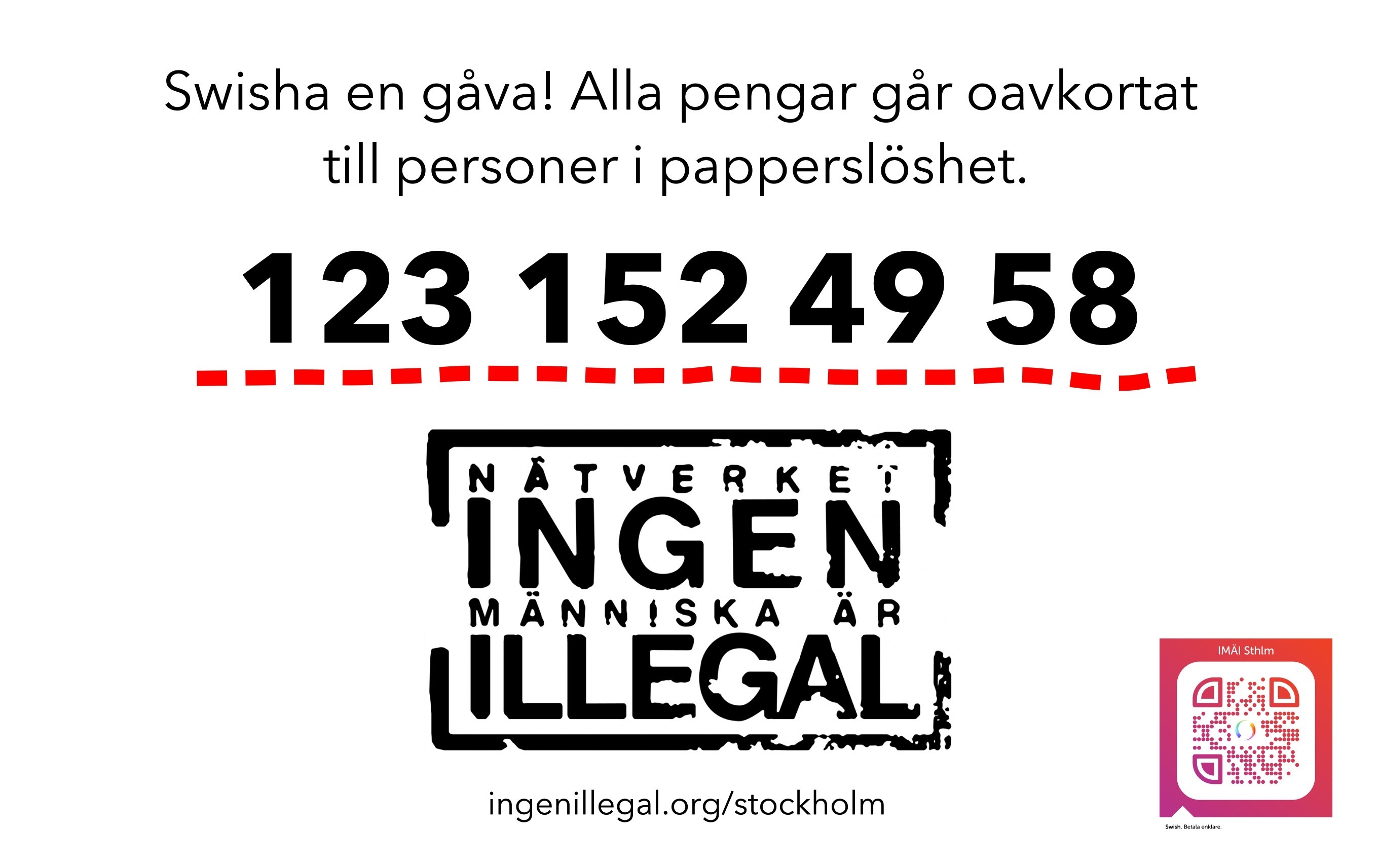



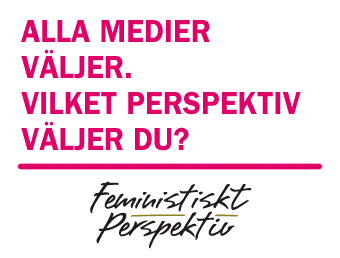












MEST KOMMENTERAT
SENASTE KOMMENTARERNA
Om Var Grupp 8 en feministisk organisation?
Om #bildskolan 21: Att äta Den Andre
Om #bildskolan 21: Att äta Den Andre
Om Porr handlar om betalda övergrepp
Om Nobels fredspris till kampanj för att avskaffa kärnvapen
Om Feministiskt perspektiv öppnar arkivet och startar på nytt!
Om Rödgrönt ointresse för fred och nedrustning borde oroa många
Om Var inte målet att vi skulle jobba mindre?
Om Feministiskt perspektiv öppnar arkivet och startar på nytt!
Om Feministiskt perspektiv öppnar arkivet och startar på nytt!
MEST LÄST